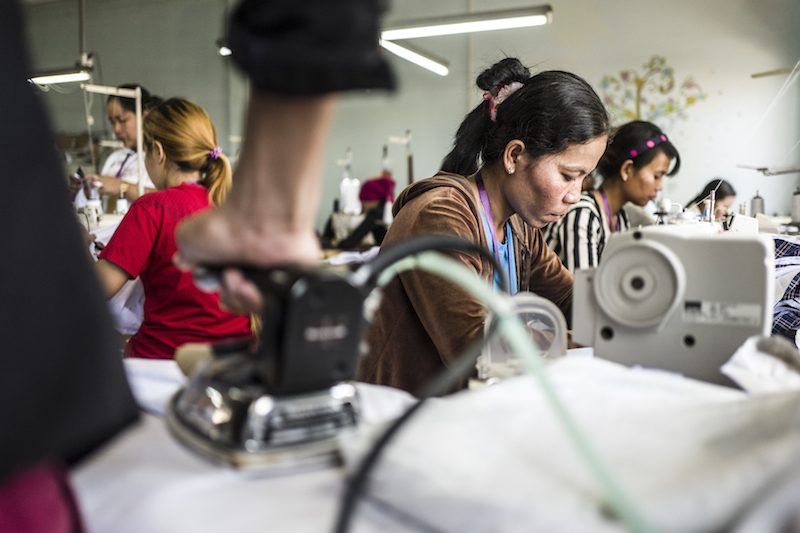At dawn every morning, 15-year-old Kroch Cheng walks downstairs to the ground floor of a Street 63 shophouse and begins a 14-hour workday.
Six months ago, the apprentice motorbike repairman was a “not very smart” 7th grade student in Prey Veng province who “wanted a skill, like auto repair,” he said on Monday at Pasteur Repair Shop in Phnom Penh.

The teenager quit school and signed on to work at the shop, owned by a neighbor from his home village, for 5,000 riel, or $1.25, a day in addition to bed, board and training.
“It’s not enough, but I came to learn, so I don’t need much,” he said.
Even with expanding tourism, construction and garment industries, millions of young Cambodians like Mr. Cheng continue to work in poorly paid jobs in the informal economy.
According to a new paper by three international labor economists, young Cambodians aged 15 to 29 who lack higher levels of education or come from poorer backgrounds are less likely to enter more stable, higher-paying formal wage jobs now or in the future.
Its three authors—Andy McKay of the University of Sussex in Brighton, England; Chiara Mussida of Catholic University of the Sacred Heart in Piacenza, Italy; and independent researcher Leticia Veruete—drew from data collected in a 2012 International Labor Organization (ILO) survey of 3,552 young Cambodians across 10 provinces.
About 88 percent of the survey respondents worked in the informal economy, which the study, citing prior research, describes as “a last resource option for low-skilled workers.” Nearly half of the respondents worked without pay, often for a family business, while just 12 percent said they had formal, salaried employment.
Those numbers add up to the highest share of what the ILO identifies as vulnerable youth employment in the region, with some two-thirds of Cambodians meeting the criteria.
The trio of researchers took the ILO survey results a step further by using modeling to predict the impact that demographic variables such as education, gender and marital status had on youth employment.
Young people from poorer or rural households, married women and current students were all more likely to be employed in the informal sector. In some cases, the authors speculate that youths chose the option because such work offered more flexibility.
The take-home finding of the study? Stay in school. That step is particularly important because once young people start working in the informal economy, research suggests they’re likely to stay there.
Phous Chanbormey, an 18-year-old who quit school during 11th grade to help her mother at her Queen Mother Laundry shop on Street 272, is among those with no other plans.
“I don’t want to study—I wasn’t good at it,” she said on Monday, idling in the shop between bouts of ironing, folding, and pressing laundry. “I like this business.”